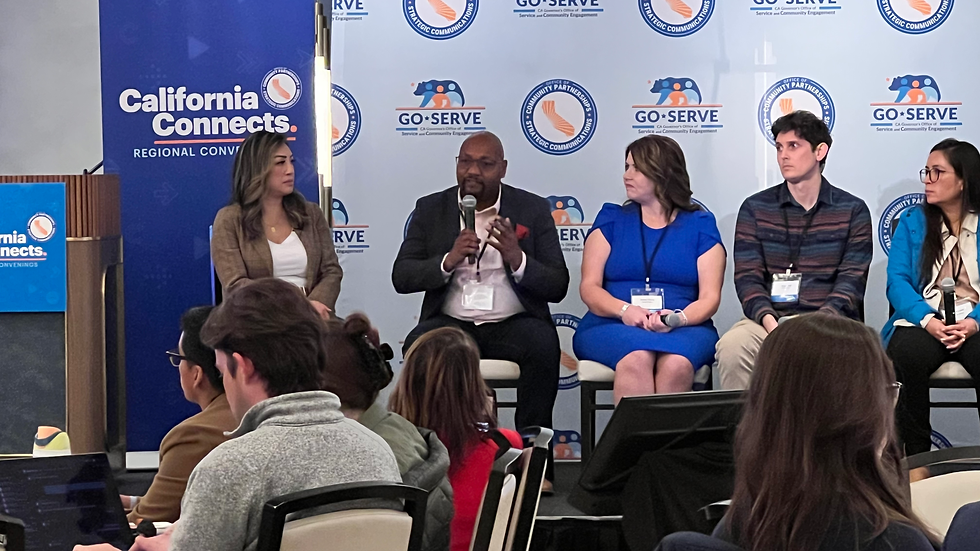ONR COVID-19 Special Report Part 6: Dr. Walton openly stresses the disparities among Blacks
- The ONME Newswire

- Apr 15, 2020
- 2 min read
The ONME Newswire and Ethnic Media Services

FRESNO, CA - The ONME News Review "News too Real" Special Report COVID-19 Part 6 revealed the latest challenges affecting African-American communities nationwide--lack of access to relief funds and the disproportionate number of Blacks dying in the COVID-19 health crisis. Hosts Julia Dudley N, Lennice Najieb and Chris Finley recapped on the latest COVID-19 case and death numbers to analyze potential outcomes directly affecting African-Americans, (see full two-hour video of last night's show below).
Medical experts at last week's briefing with ethnic media outlet discussed the disproportionate impact of the pandemic on African American and Latino communities. Pediatrician Stacie Walton said: “When COVID-19 came on the scene, I knew we were going to have disproportionate numbers of African Americans affected; they are already experiencing an epidemic of deaths from other diseases.”
Walton said that many social determinants of health, including an unconscious bias by health workers, make African Americans more vulnerable.
Walton’s statements were borne out by University of California physician Tung Nguyen. “Stark and alarming disparities are emerging in places are reporting covid-19 data by race,” he said. In Chicago 52% of the covid-19 cases are among black residents who make up only 30 percent of the City’s population.
Only 14% of Michigan’s population is black but 33% of the COVID-19 cases are African Americans, said Nguyen. In Louisiana, 70% of deaths statewide are among black residents, though they only make up 32 % of the state’s population, said Nguyen, noting that similar disparities are coming out of North Carolina, Washington DC and Milwaukee.
He advocated for all public health departments to track COVID-19 information by race and ethnicity and urged all readers of ethnic media to write their members of Congress to also such data.
Access to some funds:
While many people in need residing in undeserved communities may not have access to checking accounts to get an electronic direct deposit, the IRS has reassured that checks will still be on the way through the mail, just much later:
Sunita Lough, the Internal Revenue Services deputy commissioner for services and enforcement, said the one-time $1,200 stimulus package checks will be deposited into bank accounts on April 17, if the IRS has direct deposit information for the eligible recipient. Each individual with a social security number, who cannot be claimed as a dependent on anyone else’s tax return, is eligible for a stimulus check, she said.
Those who have not provided direct deposit information to the IRS will get a paper check instead, which will take much longer, said Lough. She advised taxpayers to go online to https://whereismyeconomicimpactpayment to fill in direct deposit information. The website, which goes live on April 17, will also allow users to track their stimulus checks and when they will receive them.
Watch ONME's COVID-19 Online TV Channel
#Drstaciewalton #covid19 #coronavirus #IRS #healthcrisis #AfricanAmericans #blackpodcasts #africanamericanpodcast #blacknews #africanamericannews #chrisfinley #ONR #ONMENews #JuliaDudleyNajieb #2020census #Californiacensus









Comments